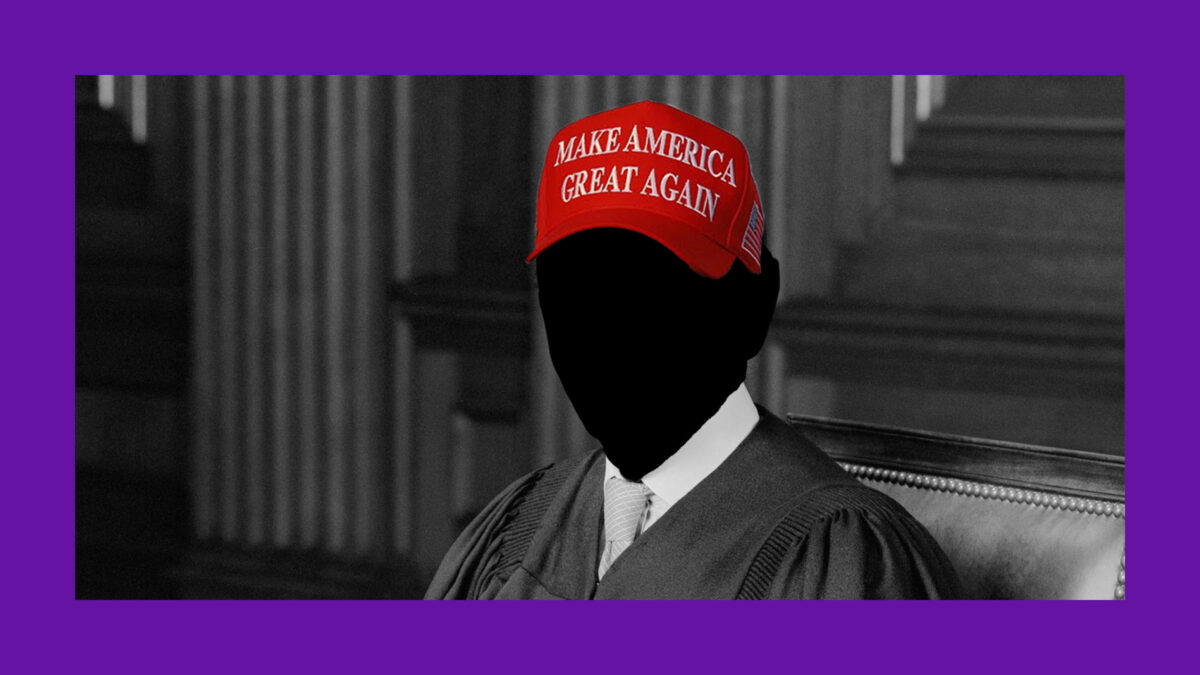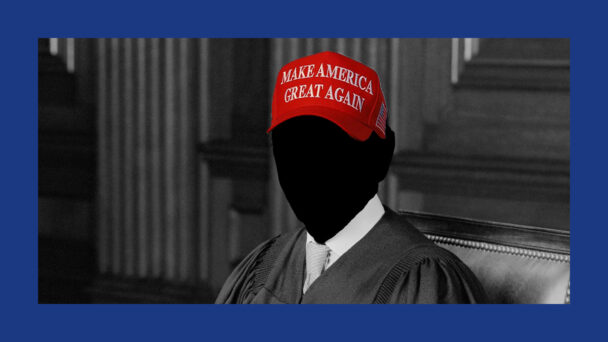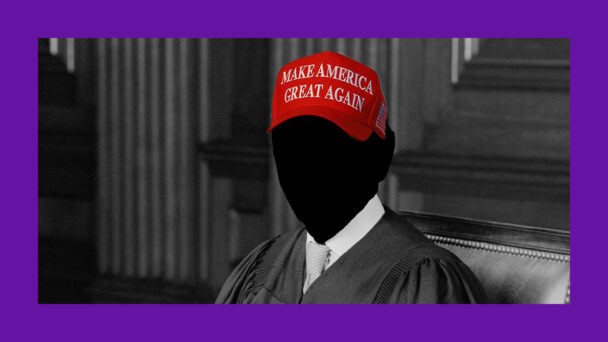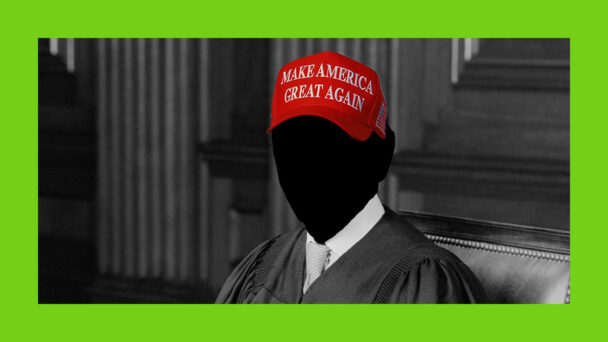Welcome to the FedSoc Twelve, a Balls & Strikes series about some of Donald Trump’s most unhinged judicial appointees. These judges, whether in their legal opinions or their off-the-clock conduct, have continued to push Trump’s agenda from the bench, forming something of a life-tenured Originalism Caucus within the federal judiciary. This summer, we’ll be checking in on these men and women now that they’ve gotten a chance to spread their wings during the Biden administration—and as they fight to be first in line for a Supreme promotion the next time Republicans control the White House.
The Résumé
James Ho attended the University of Chicago Law School, where he was—prepare to be shocked—a member of the Federalist Society. After law school, Ho clerked for Jerry Smith, a Reagan appointee to the U.S. Court of Appeals for the Fifth Circuit. He then worked in President George W. Bush’s Justice Department, first in the Civil Rights Division and then in the Office of Legal Counsel. At the OLC, he overlapped with John Yoo, with whom co-wrote a law review article arguing that the Geneva Conventions did not apply to anyone that the United States claimed was in al Qaeda or the Taliban.
Following this short stint aiding and abetting American war crimes, Ho worked for various Republican-controlled Senate subcommittees before clerking for known conflict of interest enjoyer Clarence Thomas. (Editor’s note: We began finalizing these profiles in May 2023 and do not know how many more Clarence Thomas-related ethics scandals have come to light since.)
After clerking for Thomas, Ho was briefly Solicitor General of Texas, succeeding now-Senator Ted Cruz, before moving into private practice at Gibson Dunn. And after several years of sticking up for the little guys like Texas oil companies and Wal-Mart, Trump nominated him in 2017 to the Fifth Circuit, which is the nation’s most conservative federal appeals court.
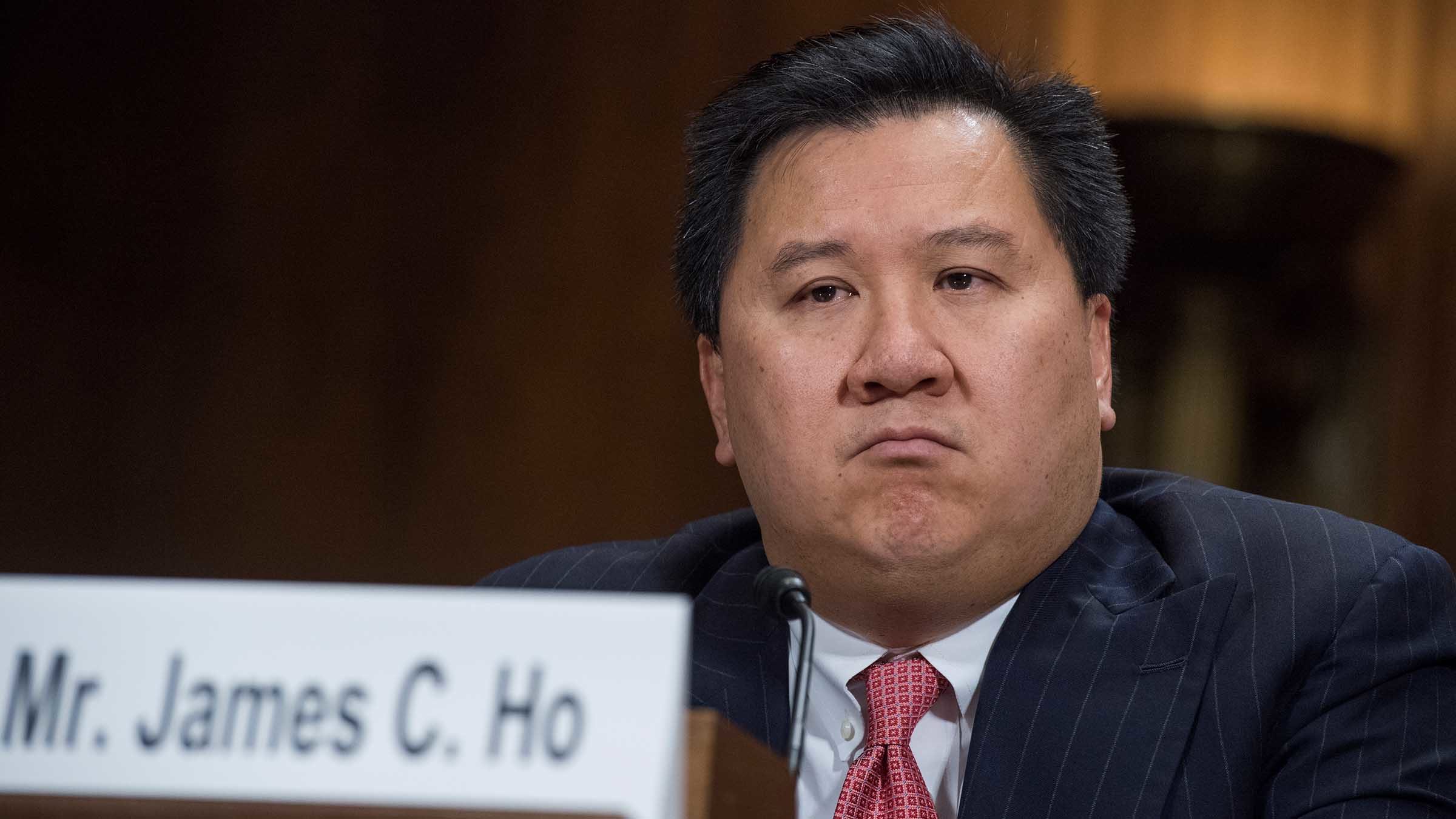
(Photo By Tom Williams/CQ Roll Call)
The Opinions
Ho often confuses being a federal judge with being a speechwriter for a right-wing shock jock’s presidential campaign. He frequently begins opinions with an attempt at a pithy one-liner that elegantly summarizes his decision. For example, in a December 2022 immigration case, he quipped that “a sovereign isn’t a sovereign if it can’t control its borders”—an aside that sounds more fit for a Minutemen recruiting post than a judicial opinion. (Presumably this assertion would be news to most European countries, which have not ceased to exist despite free cross-border travel without a passport.) When the Fifth Circuit denied qualified immunity to police officers who shot and killed a man riding a bicycle near a potential active shooter, Ho’s furious dissent began: “If we want to stop mass shootings, we should stop punishing police officers who put their lives on the line to prevent them.” (Presumably this assertion would be news to the police officers who mill around outside while mass shootings happen.)
Like most ex-insufferable law students, Ho also has the annoying habit of concurring with himself. In several cases, Ho has written a majority or even a unanimous opinion, but then also wrote separately—without the other judges on the panel—just to complain that the court below did a bad job, or that the precedent he applied was wrongly decided, or to explain why his opinion advances good right-wing policy. For example, in Wittmer v. Phillips 66, a trans woman sued Phillips 66 for refusing to hire her, alleging that they discriminated against her for gender identity. The district court found that Title VII does protect workers from discrimination based on transgender status, but that the woman had failed to prove that Phillips 66 had discriminated against her as a factual matter.
On appeal in 2019, Ho wrote an opinion for a unanimous panel of judges affirming the district court’s decision. But in a separate concurrence that ran twice as long as his original opinion, Ho chided the district court for its conclusion about Title VII, explaining why the law could not possibly protect transgender workers and complaining that other federal courts were wrong to hold that it does. The very next year, the Supreme Court held that Title VII did in fact protect transgender workers in Bostock v. Clayton County, neatly wrapping up Ho’s concurrence and tossing it in a trash can. Whoops!
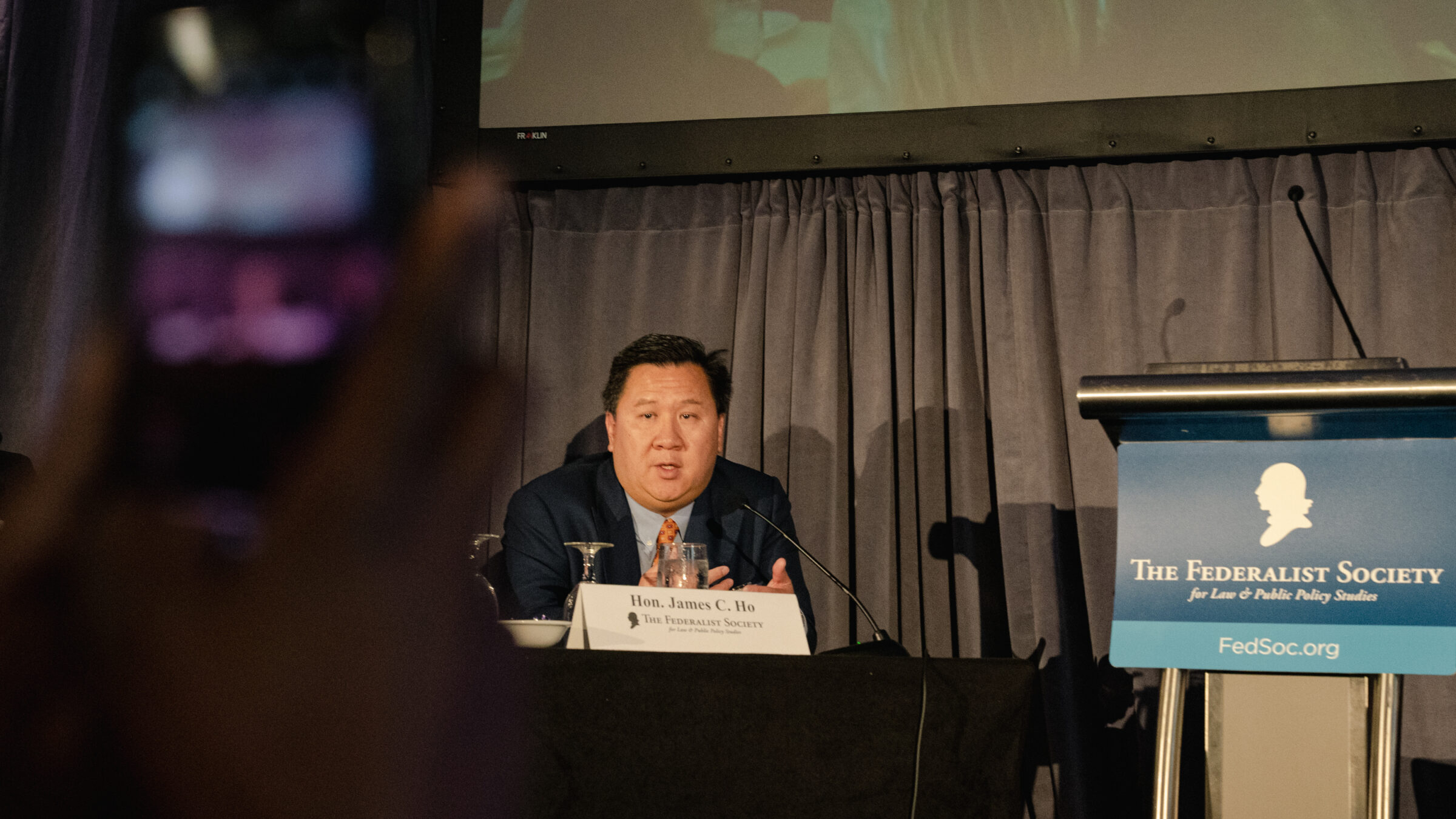
(Photo by Shuran Huang for The Washington Post via Getty Images)
Like many of Trump’s judges, Ho is also committed to advancing right-wing culture war grievances on the bench. In Wittmer and two other cases about transphobic discrimination, Ho either refused to use the plaintiffs’ preferred pronouns and names or actively deadnamed the litigants before his court. The Supreme Court has admonished counsel who misgender transgender litigants, but right-wing judges across the country have decided to see just how cruel they can be to plaintiffs in their cases before drawing a similar rebuke.
Elsewhere, Ho has repeatedly called abortion a “moral tragedy.” And although he has criticized some aspects of qualified immunity doctrine, he frequently writes to express his support for police officers who violate civil rights, in one instance writing that the job of a judge is to “apply our written Constitution, not a woke Constitution.”
None of these opinions surpass his greatest crime against the American public, though: In Trafigura Trading LLC v. United States, Ho held that a tax on oil traders was unconstitutional in an opinion that doubled as an extended riff on Hamilton, the musical. I’m not kidding: He wrote that Southern delegates to the Constitutional Convention who insisted that the Constitution ban export taxes “didn’t throw away their shot,” and that the compromise banning export taxes “no doubt frustrated many citizens. But they had no say in what their leaders traded away—they weren’t in the room where it happened.”
A tip for Judge Ho: When you find yourself writing something like “But the South was not satisfied. It worried that, if it stood for nothing, what would it fall for?” without remembering what exactly the South was “standing for” at the Constitutional Convention, you may want to reconsider.
The Weird Shit
Before this year, this section would have been all about James Ho’s fixation on “cancel culture,” because James Ho is absolutely obsessed with it. Last year, when conservative think tank weirdo Ilya Shapiro was investigated by his then-employer, Georgetown University, for tweeting that a Black woman Supreme Court nominee would be “lesser” than his preferred alternatives, Ho gave a fiery speech in Shapiro’s defense that wrapped as follows: “If Ilya Shapiro is deserving of cancellation, then you should go ahead and cancel me too.” All of this hot air ultimately went nowhere, as Shapiro self-cancelled after Georgetown cleared him of wrongdoing; no word yet on whether Ho intends to follow suit.
But since the approximately 17,000 ethics scandals relating to Clarence Thomas broke this year, Ho is in the news for a different reason: being a minor character in the Harlan Crow Cinematic Universe.
Honored to attend Jim Ho’s swearing in to the Fifth Circuit Court of Appeals today, alongside Justice Clarence Thomas & Judge Jerry Smith. I am confident my good friend Jim will be an extraordinary appellate judge and a principled jurist faithful to the law. pic.twitter.com/s1tWYu2j2c
— Senator Ted Cruz (@SenTedCruz) January 5, 2018
Like many of Thomas’s friends, Ho has spent the last few months loudly defending the honor of the justice for whom he clerked and the billionaire who hosted his swearing-in ceremony. During a seminar for the Dallas chapter of the Federalist Society, for example, Ho called Crow “a respected business leader, a devoted patriot and a generous philanthropist,” and argued that people “shouldn’t assume illicit motive with every justice who accepts a trip.” Certainly not! Who’s to say whether a Supreme Court justice is taking a free superyacht vacation in the South Pacific for fun or to do important work chronicling the rich biodiversity of the area’s many coral reefs?
As much fun as Ho seems to be having these days, he might not have the job for long. He’s treated his judgeship as an extended audition for the Supreme Court, stuffing his opinions with right-wing culture war grievances and defending his billionaire patron in public. Trump rewarded this hustle by placing him on his shortlist of potential Supreme Court nominees in 2020. The only thing in his way might be the dozens of other unhinged judges Trump appointed who are all jockeying for the same seat.
Next up: Lawrence VanDyke.
